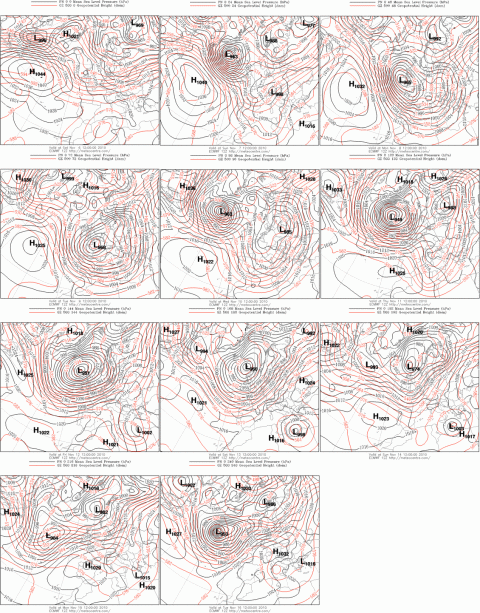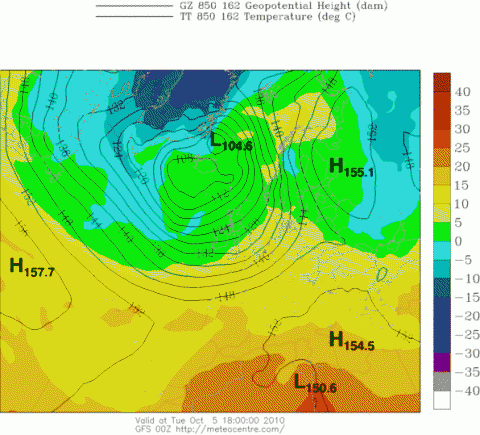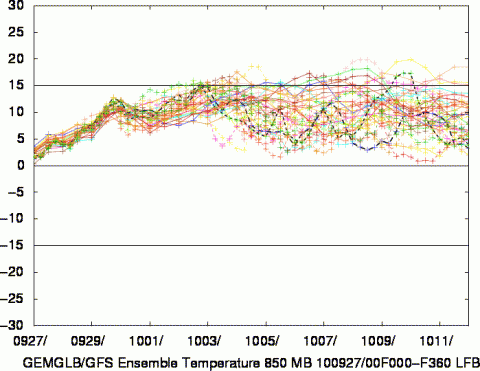-
Compteur de contenus
2 419 -
Inscription
-
Dernière visite
Type de contenu
Profils
Forums
Events
Gallery
Tout ce qui a été posté par beachcp31
-
Bonjour, Il y a eu quelques messages pour suggérer un forum distinct NB, maritimes. Je crois que ce n'est pas souhaitable car souvent les même systèmes affectent autant le NB que le Québec, alors si vous faites des analyses sur ces systèmes, elles seraient séparées dans 2 sujets distincts. Pour les observations cela pourrait être un avantage par contre, à voir. Qu'en pensez-vous? Je suis ouvert aux autres avis! Christian
-
Je profite de cette journée pour vous souhaiter un Joyeux Noël et Joyeuses Fêtes! Soyez prudent si vous prenez la route! Christian
-
Je profite de cette journée pour vous souhaiter un Joyeux Noël et Joyeuses Fêtes! Soyez prudent si vous prenez la route! Christian
-
Pour ma part je serai dans le Jura (Les Rousses) à partir de cet après-midi (une première pour moi!). On y prévoit une légère couche de neige, puis par la suite du -15 C la nuit en montagne! Retour de la douceur pour le 29-30, ce qui coïncide avec mon retour sur la ville rose. J'espère que vous aurez un peu de blanc sur Toulouse! Joyeux Noël et Joyeuses Fêtes!
-
Bonsoir, La base est amputée car il y a eu fréquemment des problèmes avec les données à la surface ce qui donnait des problèmes lors du calcul du CAPE. Je vais vérifier si ces problèmes se produisent encore. Pour les iso, il faut que je vérifie. Le problème est que le logiciel qui fait les sorties graphiques des RS est assez complexe, ce qui rend cette identification assez longue à faire. Par contre, je n'aime pas que des données incorrectes soient diffusées, alors je vais tenter vérifier tout ça ce week-end, MétéoAlerte m'ayant pris pas mal de temps ces temps-ci avec des traffics records en terme d'audience... Désolé... Christian
-

Observations du 29 nov au 5 déc
beachcp31 a répondu à un(e) topic de Pierre dans Discussions générales
Même pas encore! À Toulouse on n'a eu droit qu'à deux averses de neige samedi matin passé. Peut-être quelques flocons aujourd'hui... mais 2 à 5 cm prévus la nuit prochaine avant le redoux de dimanche et lundi avec 16 C prévus sous effet de foehn. -

Situation neigeuse à venir
beachcp31 a répondu à un(e) topic de Jean-Louis dans Discussion générales
En effet demi-surprise ici sur Toulouse ouest avec belle chute de neige à gros flocons avant la transformation en pluie. Petite couche de neige à certains endroits, les flocons tenait un peu sur la route mouillée avant de fondre (9h ce matin). On voyait très bien les Pyrénées, dégagées par effet de foehn dans sa partie orientale grâce au flux d'ouest en altitude et de sud en surface (10h). -

Situation neigeuse à venir
beachcp31 a répondu à un(e) topic de Jean-Louis dans Discussion générales
Bonsoir Jean-Louis, En effet, ce n'est pas la situation rêvée pour les amateurs de temps froid et de neige! C'est encore dans 84h, alors faut attendre encore un peu avant d'être fixé. Mais la tendance semble plutôt du côté d'un flux sud-ouest... Christian -
Nous y sommes allés en famille la 2e semaine de Noël l'an passé et c'était vraiment beau à P2000. Nous avons aussi fait de la raquette parmi les sapins enneigés, en plus du ski alpin!!
-
Je rajouterais qu'ici du réseau free.fr de France, c'est nickel, bon temps d'accès (j'ai mis des xx pour masquer mon IP) malgré les 128 ms. traceroute to meteocentre.com (132.208.133.218), 64 hops max, 52 byte packets 1 192.168.0.100 (192.168.0.100) 3.395 ms 2.082 ms 0.936 ms 2 xx.xx.xx.xx (xx.xx.xx.xx) 26.252 ms 24.983 ms 26.298 ms 3 213.228.9.254 (213.228.9.254) 28.245 ms 26.827 ms * 4 bordeaux-crs16-1-be1005.intf.routers.proxad.net (212.27.50.85) 31.787 ms 29.640 ms 32.877 ms 5 bzn-crs16-1-be1100.intf.routers.proxad.net (212.27.51.57) 38.616 ms 40.335 ms 38.837 ms 6 te2-7.mpd01.par01.atlas.cogentco.com (149.6.160.85) 39.064 ms 39.860 ms 39.476 ms 7 te0-3-0-6.mpd22.par01.atlas.cogentco.com (130.117.50.70) 41.017 ms te0-4-0-6.mpd22.par01.atlas.cogentco.com (130.117.49.249) 39.517 ms te0-3-0-6.mpd22.par01.atlas.cogentco.com (130.117.50.70) 38.589 ms 8 te4-7.ccr01.lon02.atlas.cogentco.com (130.117.50.9) 47.467 ms 47.694 ms te2-7.ccr01.lon02.atlas.cogentco.com (130.117.50.189) 47.159 ms 9 te0-0-0-5.ccr21.ymq02.atlas.cogentco.com (154.54.42.53) 127.842 ms 127.243 ms 128.899 ms 10 38.104.154.62 (38.104.154.62) 129.834 ms 126.969 ms 127.640 ms 11 amtrl-rq.risq.net (192.77.63.18) 126.108 ms 127.495 ms 126.074 ms 12 dmtrl-rq.risq.net (192.77.63.50) 128.432 ms 127.239 ms 125.220 ms 13 uqam-gw.risq.net (132.202.61.118) 126.088 ms 127.819 ms 126.530 ms Il faut aussi parfois regarder du côté DNS, ça peut ralentir chaque requête de connection et prendre un temps fou pour chaque item. Christian
-
La particularité de météocentre par rapport aux autres sites est que c'est sur le réseau du RISQ, donc c'est peut-être un problème de connectivité entre cogeco et le RISQ, d'où la particularité de l'accès météocentre par rapport aux autres sites web. Christian
-
Météocentre est hébergé à l'UQAM sur fibre optique. Pour ma part je n'ai pas de problème de vitesse d'accès.
-
On peut voir plusieurs dépressions très creuses une à la suite des autres dans ces sorties du modèle du centre européen.
-
Ce coup de vent est bien à surveiller effectivement. Cette dépression ne serait-elle pas reliée à celle très creuse qui a fait parler d'elle la semaine passée dans le centre du continent Nord Américain avec presque des valeurs records de basses pressions? Christian
-

l'hiver prochain sera le plus froid depuis 1000ans
beachcp31 a répondu à un(e) topic de lemarcos30 dans Discussions générales
Compte tenu des règles sur le forum, ce sujet est maintenant fermé. -
-
Effectivement Jean-Louis, après la fraîcheur de cette semaine nous retrouverons la douceur graduellement avec ce flux de sud insistant qui est prévu. On le voit bien aussi sur les température à 850 hPa : on gagne 7 deg C dans les prochains jours.
-

Sècheresse estivale qui risque de continuer encore
beachcp31 a répondu à un(e) topic de romain dans Discussion générales
Ah il doit y avoir eu beaucoup plus dans le sud-ouest de Toulouse. Il aurait été intéressant de voir les relevés de Francazal. Je circulais sur Enseinhower et c'était vraiment le déluge!! La cellule est passée sur Cugnaux à peu près. -

Sècheresse estivale qui risque de continuer encore
beachcp31 a répondu à un(e) topic de romain dans Discussion générales
Nous avons eu de bonnes précipitations lundi vers 18h30, mais ça s'est avéré être tout, car hier a été assez ensoleillé finalement, quelques gouttes tout au plus... Aujourd'hui encore il y a eu des averses, mais pas dans la plaine Toulousaine. On a peut-être quelque chance avec la zone d'averses au nord de Auch actuellement... Mais c'est vrai que tout est vraiment très sec. Sinon hier soir beau spectacle d'éclairs, mais Toulouse est passé entre les cellules et on n'aura eu que le vent et les éclairs à distance! Mais quel vent! Et on voyait bien les éclairs de chaque côté, vers le sud et vers le nord. Christian -

Le Prix Alcide-Ouellet 2009 remis à Christian Pagé
beachcp31 a posté a topic dans Vie du site et du forum
Bonsoir! Une nouvelle sur un prix que j'ai reçu en mains propres à la fin juillet à Montréal. Je voulais partager cette belle nouvelle avec vous, qui est maintenant officialisée! Je profite de l'occasion pour remercier sincèrement Jean-François Caron, toute l'équipe de modération du forum (et ses participants qui le font vivre!), René Héroux, Infoclimat et ses passionnés, le centre ESCER, le groupe des Sciences de l'atmosphère et l'UQAM, et encore plusieurs autres personnes qui ont contribué à rendre possible ce projet qui tient la route depuis 1995! Voici le site tel qu'il était visible en 2001, 1998 et 1997 ! http://www.nouvelles.uqam.ca/index.php?article=1707 http://www.diplomes.uqam.ca/component/cont...embre-2010.html Le Prix Alcide-Ouellet 2009 remis au diplômé Christian Pagé 24 août 2010 Catégories : Sciences, Diplômés, Prix et distinctions Le Prix Alcide-Ouellet 2009 a été décerné à Christian Pagé, diplômé du baccalauréat en physique (1992), de la maîtrise en sciences de l'atmosphère (1995) et du doctorat en sciences de l'environnement (2006) de l'UQAM, pour son implication dans la diffusion conviviale de l'information météorologique. Christian Pagé a mis au point et maintient toujours les sites web suivants : http://meteocentre.com/ donne accès sur une seule page à toutes les informations météorologiques disponibles : observations (surface, altitude, radar, satellite, foudre), analyses, sorties de modèles et prévisions pour le Québec; http://meteoalerte.com/ permet aux observateurs bénévoles d'entrer des observations météorologiques en temps réel; http://meteocentre.com/forums/ donne accès à un forum de discussions sur la météorologie; les sites http://meteocentre.com/toulouse/ et http://meteocentre.com/reading/ sont des clones de météocentre pour la France et le Royaume-Uni respectivement. Christian Pagé a travaillé de nombreuses années (1992-2006) à l'UQAM dans l'équipe de recherche de Peter Zwack, ainsi qu'à l'université McGill avec Isztar Zawadzki. Avec le soutien du groupe des sciences de l'atmosphère et du centre ESCER de l'UQAM, il a mis en route et développe, encore actuellement, un site web et un forum de discussion sur la météorologie afin d'offrir un espace de discussions entre les météorologues et le grand public, de même qu'une interface permettant au grand public de partager en temps réel des observations météorologiques. Après un stage postdoctoral à Météo-France à Toulouse (2006-2008), portant sur le développement d'un prototype permettant l'envoi en temps réel de données météorologiques à bord des avions, il occupe actuellement un poste de chercheur au Centre Européen de Recherche et Formation Avancées en Calcul Scientifique (CERFACS) à Toulouse sur l'élaboration de scénarios climatiques régionalisés. Le Prix Alcide-Ouellet est nommé en l'honneur du pionnier bien connu de la météorologie au Québec, l'inoubliable chroniqueur météo à l'émission CBF - Bonjour de Radio-Canada, décédé en 1989. Ce prix, créé en 1991 par l'Association professionnelle des météorologistes du Québec (APMQ), et aujourd'hui décerné par la Société canadienne de météorologie et d'océanographie, vise à souligner la contribution d'une personne ou d'une institution au rayonnement de la profession en météorologie au Québec. -

Ajouts et mises à jour - août 2010
beachcp31 a répondu à un(e) topic de Jean-François dans Vie du site et du forum
Je profite de l'occasion pour remercier chaudement Jean-François pour le soutien et le travail dans les mises à jour ainsi que pour le segment Reading de Météocentre!! Le climat anglais a ses avantages par rapport au climat du sud de la France... Christian -
Je ne sais pas de quand date le dernier 38 C à Toulouse, ni quelle est la fréquence de telles températures. Est-ce que quelqu'un aurait quelques informations? Christian
-
Ça y est, 38 C à Francazal à 14h30... Le point de rosée se tient entre 14 et 17 C ce qui est confortable (humidex de 43 C). LFBF 221400Z AUTO VRB04KT 9999NDV // NSC 37/17 Q1014= LFBF 221430Z AUTO 12005KT 040V210 9999NDV // NSC 38/17 Q1013= LFBO 221400Z 11005KT 040V150 CAVOK 37/14 Q1014 NOSIG= LFBO 221430Z 09005KT 020V150 CAVOK 37/14 Q1013 NOSIG= Bonne fin d'après-midi, à passer près et dans la piscine! Avec une bonne bouteille d'eau et de la crème solaire évidemment.
-
C'est effectivement bien chaud, avec un Tx de 36.8 C hier à Blagnac. Déjà 35 C à 13h30 à Francazal, 34 C à Blagnac. L'humidité est en basse, tout comme hier! 2 C de plus qu'hier à la même heure. LFBF 221100Z AUTO VRB03KT 9999NDV // NSC 34/18 Q1017= LFBF 221130Z AUTO VRB04KT 9999NDV // NSC 35/17 Q1016= LFBO 221100Z 05004KT 010V140 CAVOK 32/15 Q1017 NOSIG= LFBO 221130Z 08006KT 010V150 CAVOK 34/14 Q1016 NOSIG= Christian
-
Bonjour à tous! Je viens de constater que le forum a dépassé les 100 000 messages depuis un moment... et nous avons 1255 membres : plusieurs ne font que consulter, mais en étant membre cela permet un suivi des messages lus. Mais ce n'est pas la quantité de messages qui importe seule, il y a aussi la qualité qui va de pair! Christian ============ Nos membres ont écrit un total de 112074 messages Nous avons 1255 membres inscrits ============




